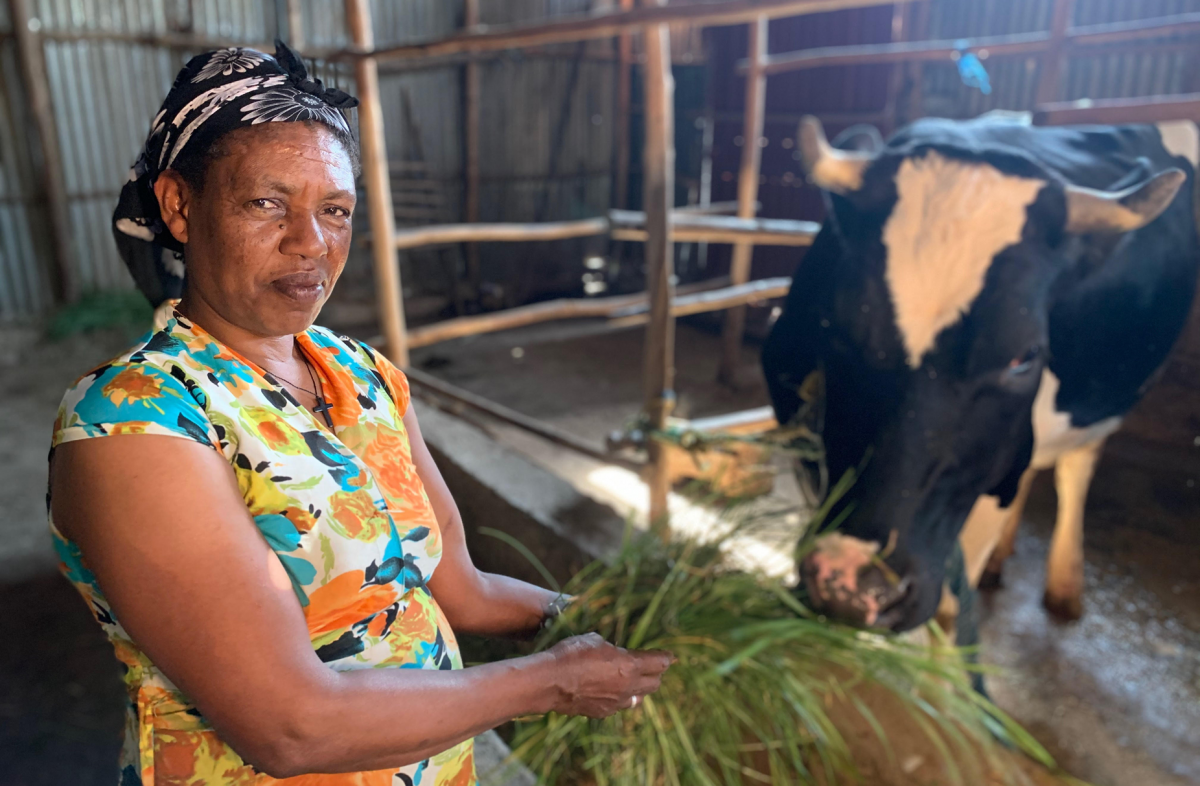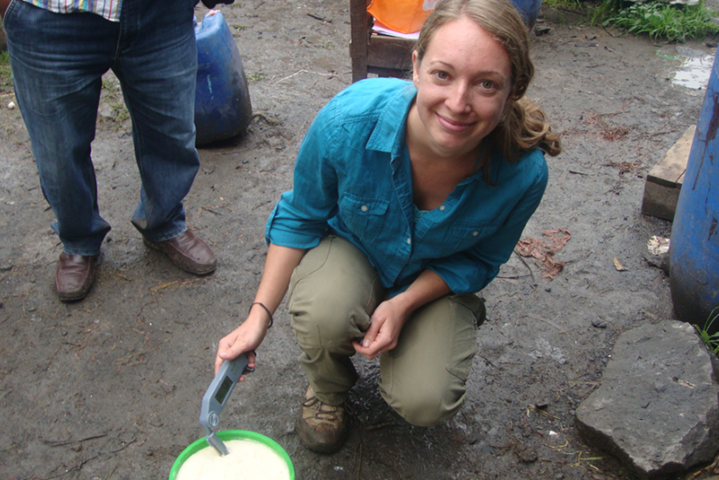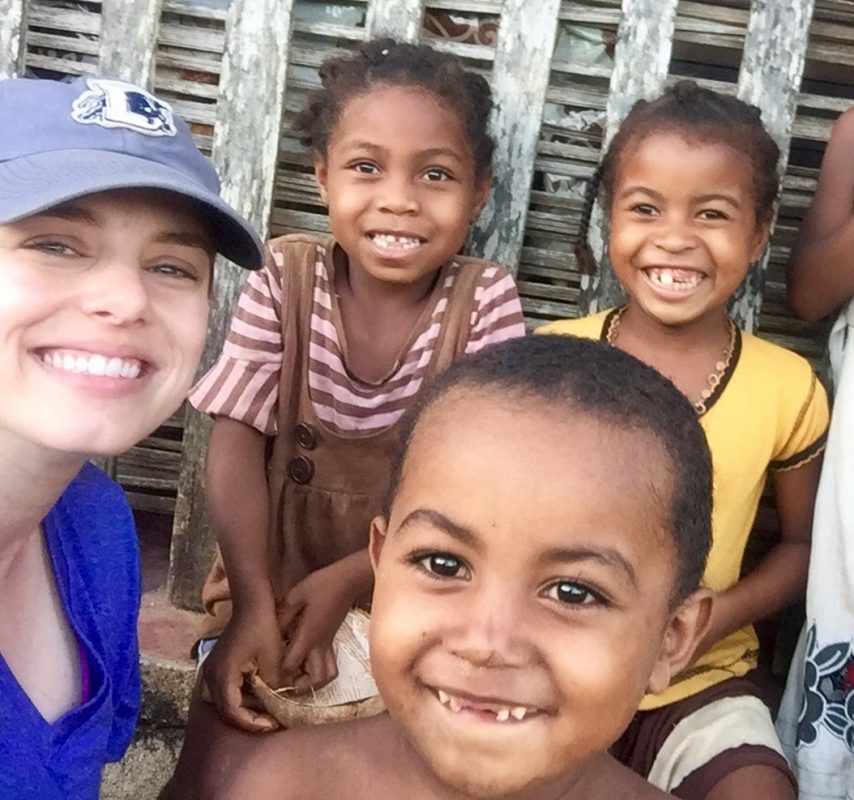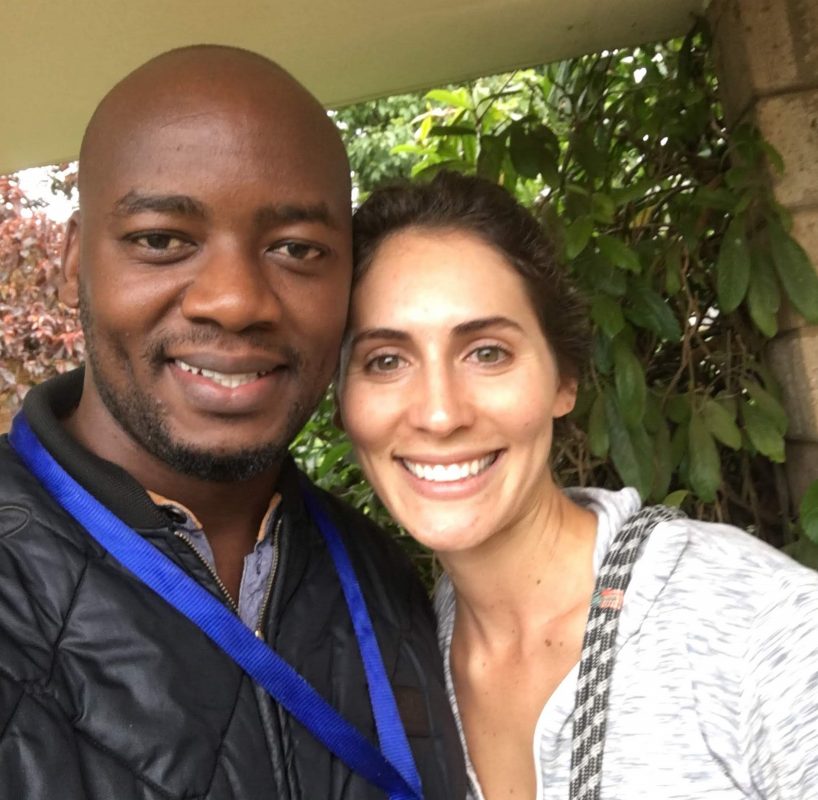
Three members of the NC State College of Veterinary Medicine’s Class of 2020 have earned a Certificate in Global Health, part of the college’s comprehensive and groundbreaking global health program.
Keli Gerken, Amie Pflaum and Hannah Varnell received the formal academic certificate this year, launched in 2015 and overseen by Andy Stringer, clinical assistant professor and director of global health education at the CVM. Gerken, Pflaum and Varnell receive their DVM on May 8.
“Veterinarians have an increasingly important role to play in addressing the grand global health challenges of the 21st century, particularly in areas such as infectious disease control, antimicrobial resistance and food security,” says Stringer. “These three students have worked hard, both here in the U.S. and during their international research placements, to complete the certificate program.
“The certificate allows DVM students to examine the complexities inherent in improving health on a global scale.”
The CVM is among just a few veterinary schools in the United States offering such a specialized global health certificate. It was first awarded to 2019 graduate Lizabeth Rennecker.
“One of the reasons I chose NC State four years ago was because of the global health certificate and the global health-focused education,” says Varnell. “The program fulfilled my hopes to learn about and embody what a veterinarian can contribute to the world.”
The certificate is earned through study of a range of global health topics during four years at the CVM while also working toward a DVM. A major part of the program is completion of an international research project that addresses a pressing global health issue, with on-site, mentored study completed by students.
“The CVM is committed to improving global health for all — humans, animals and the environment,” says Stringer. “This program provides students with an opportunity to learn and engage, and it highlights the importance of multidisciplinary collaborations in addressing these global health challenges. We are working to develop the next generation of global health leaders”.
Here’s a closer look at the international research projects of this year’s certificate honorees:

Keli Gerken
Project: Characterizing pathogens and human behavior related to dairy animal source foods.
Location: Addis Ababa, Ethiopia.
The work: Gerken studied the microbial quality of milk, yogurt and cheese in Ethiopia’s capital and gathered information on dairy production through interviews with female dairy owners. Ethiopia has one of the world’s largest death rates from diarrheal disease, which is primarily linked to contaminated foods. Milk products from small farms sold in urban areas is big business in Ethiopia. Gerken also conducted work in Kenya.
The impact: Gerken’s study provides a richer understanding of behavioral practices around dairy products in the country, highlighting the potential for health risks. Such information may help guide intervention programs in Ethiopia.
“The global health certificate gave me an additional qualification that helped me show my dedication to global health,” says Gerken. “It was a starting point for me to learn more about veterinarians and global health.”
Post-graduation plans: Gerken is preparing to spend a year in Kenya as part of the prestigious Global Health Equity Scholars Program. For the fellowship, she will join a research team investigating the Rift Valley fever virus, an infectious disease impacting animals and humans.

Amie Pflaum
Project: Investigating chicken health challenges and studying infectious disease transmission pathways from small mammals to humans.
Location: The Sava region of northern Madagascar.
The work: Working under Stringer’s mentorship, Pflaum launched a domestic animal survey involving the health of chickens in the fourth largest island in the world. Pflaum’s project gathered data on domestic ownership in Sava and access to veterinary care. Among the findings: nearly every rural and urban household owns free-range chickens crucial to the livelihoods of households, and the most frequently discussed challenge is an annual outbreak of Newcastle disease and fowl cholera, Pflaum notes.
Additionally, Pflaum worked to identify ecological and evolutionary drivers of infectious disease transmission through a collaboration with the Duke Global Health Institute.
“Working in that austere environment with the incredible Malagasy people was the experience of a lifetime,” says Pflaum.
The impact: Food security is a critical issue for the people of Sava, Pflaum notes, adding that an “aggressive educational campaign” launched with the release of a novel Newcastle disease vaccine will go a long way to improve livelihoods.
Post-graduation plans: Pflaum will enter the U.S. Army Veterinary Corps, supporting public health initiatives across the globe.
“The remarkable experiences I have had as a student in the global health certificate program have prepared me for the future challenges I will face as an Army veterinarian working in the public health realm,” says Pflaum. “I’m grateful for these opportunities and even more grateful for the lifelong relationships I have forged with my CVM faculty advisors and host-nation research partners.”

Hannah Varnell
Project: Surveying the quality and safety of milk sold in informal markets.
Location: Nairobi, Kenya.
The work: Varnell, as part of a fellowship with the Internal Livestock Research Institute (ILRI), studied bacteria loads and rating quality standards such as fat and lactic acid content in milk. Groups such as the Kenya Dairy Board are encouraged to use the findings to reevaluate milk market treatment practices. Overall, the informal market milk was found to be safe, though the research found that the average consumer in the country is not adequately preparing and storing milk.
Some samples had significant levels of aflatoxin M1, which has been linked to liver cancer in humans and stems from improper animal feed storage, notes Varnell, adding that the ADMI levels are an, “immediate and long-term public health concern.”
The impact: Varnell’s work is part of a five-year MoreMilk Project study from the ILRI, with goals to improve the safety of the informal market milk through vendor training, consumer education and influence on public policymakers.
Post-graduation plans: Varnell has accepted an internship at Virginia Tech in production animal medicine and epidemiology.
“The CVM’s global health program allowed me to build on my previous experience in development economics and sharpen my career focus as a veterinarian specializing in food animal epidemiology,” says Varnell. “Dr. Stringer has been an irreplaceable mentor and advocate for my career field.”
~Jordan Bartel/NC State Veterinary Medicine
